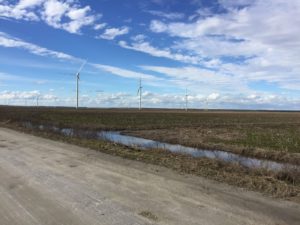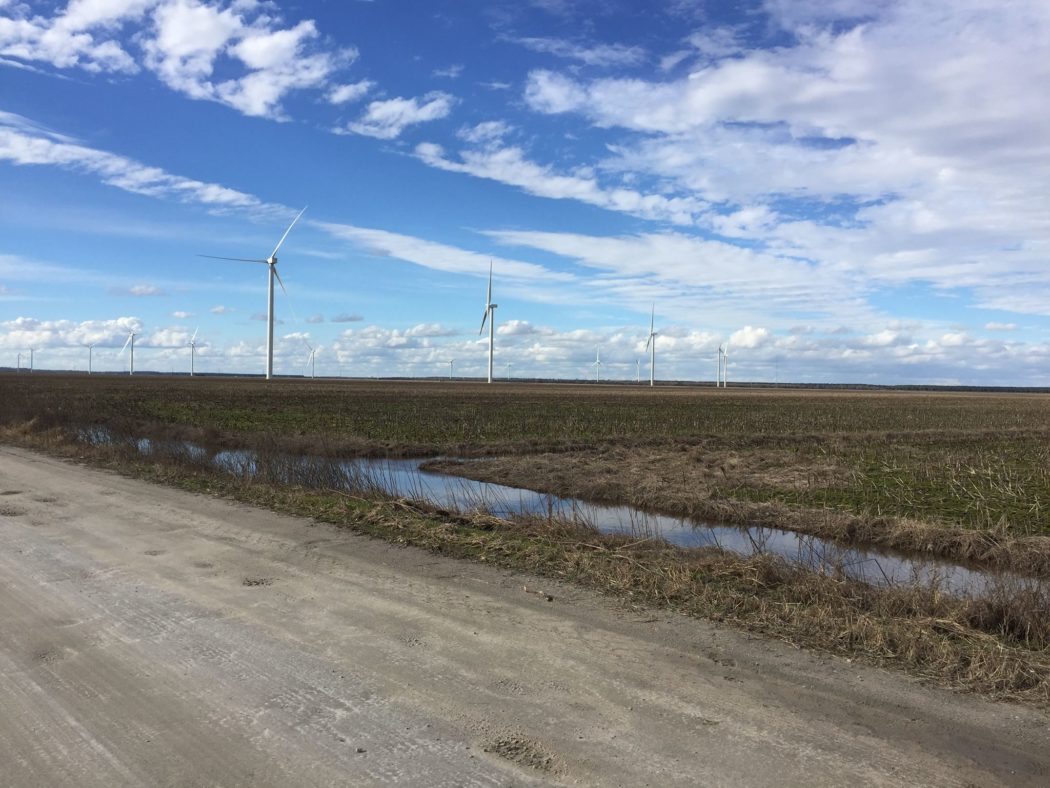By Katharine Kollins, President of the Southeastern Wind Coalition
Katharine Kollins, President of the Southeastern Wind Coalition
Last year, North Carolina became the first state in the Southeast to host a commercial-scale wind farm. The Amazon Wind Farm began operating in Perquimans and Pasquotank Counties in February 2017, generating up to 208 megawatts of clean, renewable energy. That’s enough to power 61,000 homes.
In addition to generating clean energy, these projects are a windfall for rural counties. In eastern North Carolina, Pasquotank and Perquimans counties are reaping the benefits of the project. Recently the counties received a combined $640,000 for their first property tax payment from Avangrid Renewables, the wind farm developer, making Avangrid the largest taxpayer in both counties. The increase in tax revenue is already having an impact in the community. At a check-presentation ceremony earlier this year, Pasquotank Manager Rodney Bunch said the tax money was going towards keeping property taxes low and school resources. Perquimans county is using the money to upgrade their emergency services.
It is important to note that both of these are Tier 1 counties, signifying that these counties are some of the most economically distressed in the state. More often than not, they lack access to high-dollar investment projects that can help boost the local economy. Many of these communities are in rural areas – the exact place developers are looking to build projects.
The wind farm has brought jobs, business, and an increased tax base to the area. At its peak, the Amazon Wind Farm sustained over 500 construction jobs, and now provides 18 high-paying, technical jobs, with an average annual salary of $80,000. In an area with a declining population, this means a lot for communities. Cecil Perry, Chairman of the Pasquotank County Board of Commissioners, says “These jobs, and this nearly $400 million investment in a rural part of North Carolina, are welcome — everyone in the county will benefit from the long-term property tax payments.”
Direct spending during construction at local businesses, landowner lease payments, and new property taxes, creates positive economic development momentum where it’s most needed. Wayne Harris, the Elizabeth City and Pasquotank County Economic Development Commission’s economic developer, reports that “During construction, we saw approximately $18 million dollars spent by the developer and collected sales tax for Perquimans and Pasquotank increased by 20 and 10 percent, respectively.” That money was spent on a wide variety of things like services, hospitality, and consumer goods. This diversity helps to ensure that more than just a handful of sectors benefit from the project.
Wind energy is also complimentary with agriculture – North Carolina’s largest economic sector. Wind turbines give farmers a reliable, diversified source of income, where income from crops can be unreliable. The 60 landowners with turbines on their property for the Amazon Wind project receive $6,000 per turbine per year while continuing to farm right up to the base of the turbines. Many of these landowners are farmers with multiple turbines on their properties. When there’s a drought or a short growing season, those lease payments will be there for the farmers to help soften the blow and ensure they can keep farming year after year.
Unfortunately, North Carolina is in the middle of an 18-month moratorium on wind energy permitting enacted by the state’s General Assembly in 2017. If no further restrictions are added in the quickly approaching 2018 session, the moratorium will conclude on December 31, 2018. There are additional projects in the pipeline with farmers and communities eagerly anticipating their permit and construction, so they too can enjoy the economic benefits wind farms bring to communities.

There are no comments
Add yours